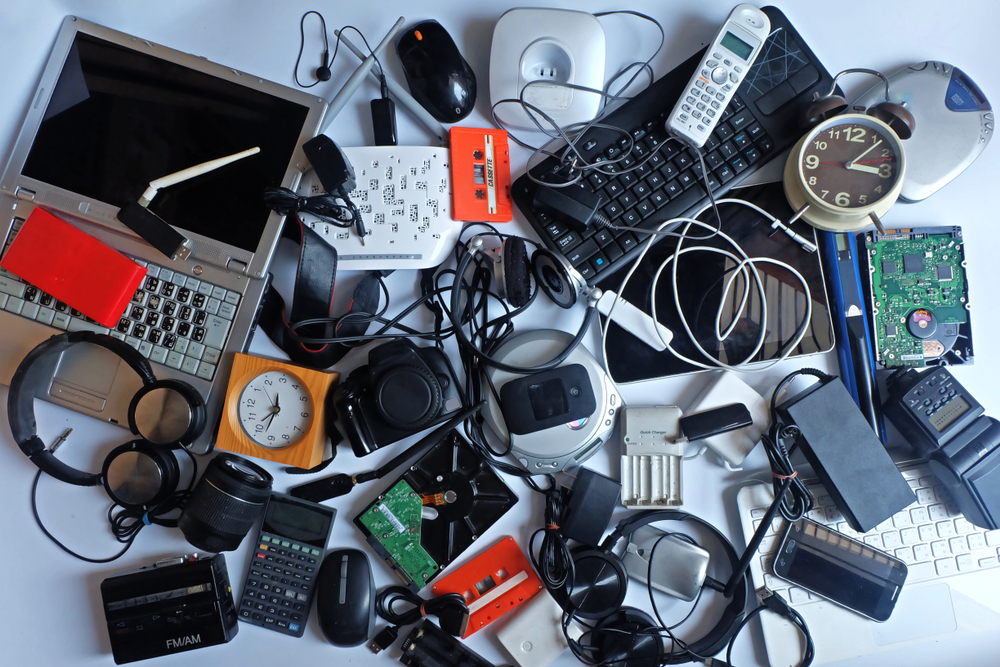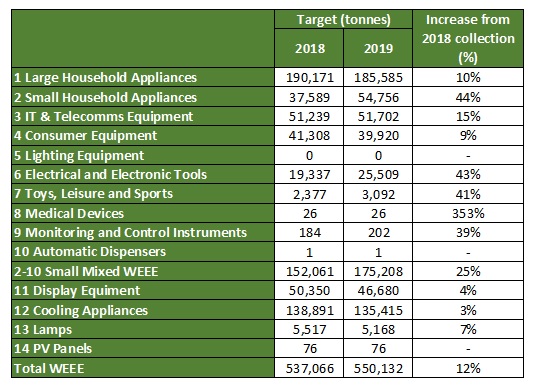Details of the proposed targets for 2019 were released to organisations involved in WEEE collections and recycling yesterday (27 February), indicating that Defra favours an overall collection target of 550,132 tonnes – an increase of around 13,000 tonnes compared to the 2018 target.

Concerns have been raised from within the producer compliance community over whether the proposals are achievable, but the figures have been welcomed by WEEE reprocessors who say it could boost the tonnages of WEEE received at their facilities.
A higher collections target is required for the UK to meet its European Union requirement to collect equivalent to 65% of the weight of EEE placed on the market during the three previous years. Up to now the target level has stood at 45%.
Member state target
Defra’s proposed collection targets are based upon collecting the equivalent of 65% of the new products put onto the market over the last three years – taking into account ‘substantiated estimates’ of WEEE which has been recycled outside of the WEEE system, for example by scrap metal recyclers.

The proposal comes at a time when collections of WEEE appear to be on the decline, with targets having been missed in consecutive years. Lighter products being placed onto the market, increasing reuse of products and hoarding of goods by consumers have been used to explain the trend.
Research by consultancy Anthesis has also suggested that some waste electronics and electricals – such as air conditioning, building controls and lighting – are being disposed of as construction and demolition waste and not counted towards WEEE targets.
Collections would need to increase by 12% compared to the overall tonnage collected in 2018 to meet the target, the Defra figures indicate.
Compliance fee
Producer compliance schemes who fail to meet their individual targets are required to pay into a compliance fee – used to finance projects to boost the collection of material in future years – and which raised more than £8 million for 2017.
In its bulletin to schemes and reprocessors, Defra said it hoped that funding from the WEEE fee would help to boost collections and could assist in meeting the higher target for 2019.
Funding will be used to finance a major national communication and behaviour change campaign – around protecting data and safe recycling of small WEEE items; as well as a study into business WEEE flows, and; a study on the volume of equipment placed on the market in the UK but exported before it becomes WEEE.











Subscribe for free